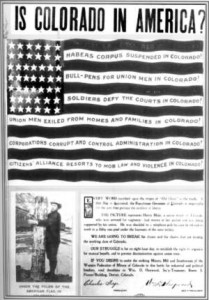Article by Steve Voynick
Rural life – August 2003 – Colorado Central Magazine
GENERAL STORES, those small, rural emporiums where you can buy a little of everything but not a lot of anything, are places where you catch up on local news, pick up the mail, and find out what’s biting. But they’ve been disappearing for decades, most replaced by look-alike, 24-hour convenience stores with brightly lit glass fronts, sanitized coffee counters, and minimum-wage clerks.
Old-time general stores tend to survive only in areas that are rich in history and tradition, or where there’s a specialized clientele, no competition for 20 miles, and an owner who isn’t out to get rich quick. That pretty much sums up the Twin Lakes General Store and United States Post Office in Twin Lakes, Colorado.
Twin Lakes is Lake County’s “other” town. An unincorporated village 23 miles south of Leadville and the same distance north of Buena Vista.
During the summer months, when Route 82 is a well-traveled shortcut over Independence Pass to Aspen, the cash register at the Twin Lakes General Store rings steadily.
“It had better ring in the summer,” says June Hervert, who has owned and operated the store for the past 24 years, “because it won’t ring in the winter.”
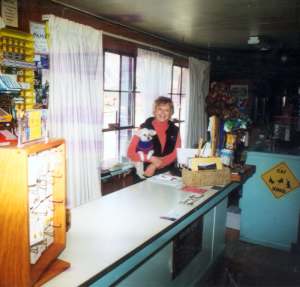
During the seven months when heavy snows close Independence Pass, Route 82 dead-ends six miles beyond Twin Lakes. Throughout these long winters, the store’s only customers are a handful of locals, occasional ice fishermen and cross-country skiers, and motorists who are either lost or don’t realize that the pass is closed.
“Summer brings 95 percent of my business,” Hervert admits. “The store stays open in winter because it’s also a U. S. Post Office, and postal regulations require that it be open.”
Twin Lakes’ first general store and post office opened back in 1866, when the town was known as Dayton. Lake County was then an enormous tract of land with only three settlements: Dayton and the gold camps of Oro City and Granite. The county seat of Oro City, near the site of present-day Leadville, had already fallen on hard times. After the placer gold ran out, its population plummeted from 10,000 to 50, and its collection of rotting, empty cabins no longer made an appropriate county seat.
In October 1866, Lake County officials moved the county seat to Dayton, where good lakeside pasture and encouraging nearby mineral prospects seemed to promise a brighter future. That same month, a general store and a United States Post Office also opened at Dayton.
BUT DAYTON LASTED just two years. As its mining hopes faded, gold discoveries near the Arkansas River shifted attention to Granite, which was named the new county seat in November 1868. After its general store and U.S. Post Office closed, Dayton became a ghost town.
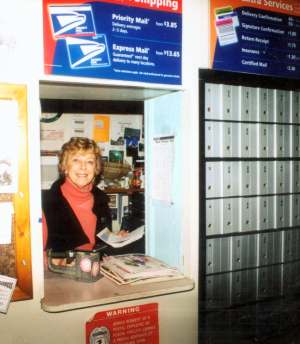
Then, 11 years later, the site of Dayton roared back to life as the jumping-off point for miners bound for new silver discoveries west of the Continental Divide at the future site of Aspen. In December 1879, the U.S. Post Office Department authorized a new post office for the reborn town. But since a dozen Daytons already existed in other states and territories, the department named its post office “Twin Lakes.” A new general store began doing a brisk business as the last place where miners could buy food and supplies before setting out on the 32-mile journey over 12,095-foot-high Independence Pass to the Aspen silver strikes.
Twin Lakes has not been without a general store since. Today, the Twin Lakes General Store occupies a wooden-frame structure built in 1904, a building that always housed a general store under a succession of owners. Somehow, the general store in Twin Lakes has survived 124 years of profitable summer business booms and dismal winter busts.
THINGS BEGIN SLOWING DOWN at Twin Lakes when the four local U.S Forest Service campgrounds close after Labor Day. Business slows even further when the Colorado Highway Department closes Independence Pass in late October.
“I never reorder anything during the winter,” says Hervert. “I’ll sell an occasional tank of gas or a few items now and then, but the register often won’t ring for days. But the locals still come by to pick up their mail before I close at noon.”
The U.S. Post Office — Twin Lakes, Colorado 81251 — occupies a crowded, 10×6-foot room at the back of the Twin Lakes General Store. Despite its diminutive size, it’s a full-service post office that sells stamps and money orders, and handles packages as well as certified, insured, and registered mail.
“Mail goes into 25 boxes during the winter,” explains Hervert, who is also the postmistress. “As a rural post office without home-delivery service, the boxes are free to year-round residents. But in the summer, I’ll rent nearly 100 boxes to part-time residents.”
Although Twin Lakes is closer to Leadville, its mail is collected in the Salida post office 50 miles to the south and then delivered by a team of private mail-haul contractors.
“We load the mail at Salida at 6 a.m., then deliver it to post offices at Nathrop, Buena Vista, Granite, and, finally, Twin Lakes,” says mail driver Frank Hilte. “We get the mail to Twin Lakes by 9 or 9:30 in the morning. In the winter, we leave Twin Lakes with the outgoing mail at noon. During the summer, we leave at 4 in the afternoon.”
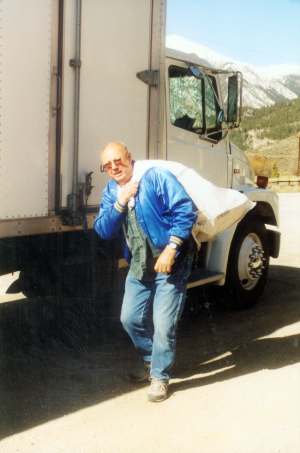
The mail drivers also bring copies of the weekday Denver Post and the Saturday Rocky Mountain News to Twin Lakes residents — a much appreciated favor for a tiny village that otherwise has no daily-newspaper delivery.
Despite the winter business doldrums, there’s one other thing Hervert can always count on — a small, but surprisingly steady stream of Aspen-bound motorists who assume that Independence Pass is open year-round. All are more than surprised when, west of Twin Lakes at a point just 26 highway miles from Aspen, they find a locked metal gate blocking the highway.
“When they come back to the store to ask about the gate, I have to tell them that Aspen is 150 highway miles away,” Hervert explains, with a hint of a smile. “Some say, ‘But the road’s dry here’. I tell them that the pass is nearly 3,000 feet higher and — believe me — there’s snow up there.
“A few get irate,” she continues. “They ask when the snowplow comes through, thinking they can tailgate it to Aspen, or they want to know if there’s a ‘side road’ they can take. A lot think I have the key to the gate. One lady even demanded the key — on the grounds that she was a ‘doctor’s wife.’
“They all pass at least three big ‘Independence Pass Closed’ highway signs to get as far as the store,” Hervert adds. “On average, one disappointed Aspen- bound driver stops here every day during the winter. The bright side is that some buy a tank of gas or something to eat.”
Winter business, or lack of it, lasts until mid-May, when post office hours are extended from 8 a.m. to 4 p.m. By then, Hervert is already restocking the shelves, because summer business begins in a rush just before Memorial Day.
“Snow permitting, the pass usually opens at noon on the Thursday before the holiday weekend,” she notes. “Cars line up an hour before that, which means I’m selling gas and snacks.”
The opening of the pass is accompanied by an interesting culture clash. In winter, Twin Lakes sees only typical Lake County vehicles — pickups, jeeps, smaller domestic and Japanese cars that have gone through a few sets of tires, and an occasional later-model SUV. But when the pass opens, a stream of Aspen-bound Porches, BMWs, Jaguars, and even Masseratis pass through town.
“Quite a few drivers in those really expensive cars have no idea how to work the pump,” Hervert notes. “I think this is the first time they’ve ever pumped their own gas.”
Full summer business begins two days later when the nearby campgrounds open for Memorial Day weekend. At capacity, the campgrounds hold more than 600 people, many of whom forget to bring certain items, run out of something, or just get bored with their packed-from-home fare. Their choice is to drive nearly 50 miles round-trip to stores in Leadville or Buena Vista — or visit the Twin Lakes General Store.
Hervert describes her stock as “basic.” It includes the type of items that are really needed when you need them, and needed fast — things like aspirin, a quart of 10W-40, bandaids, a roll of film, a bar of soap, or a jar of Powerbait.
MOST OF HERVERT’S summer stock is geared to campers’ needs. There’s a selection of beer, wine, and hard liquor (restocked every week); a variety of canned and dried foods; bread; dairy products; soft drinks; snacks; frozen hot dogs, ground beef, chicken, and steaks; ice cream; and condiments. Non-food items include charcoal, firewood, fishing gear, knives, and live bait. The store also sells fishing and small-game licenses.
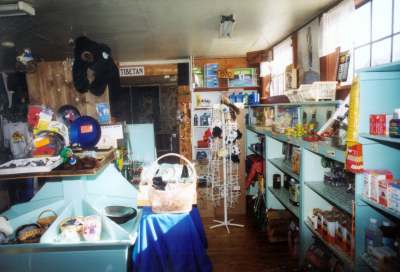
But basics may not be enough for campers with more discriminating tastes. Some have asked Hervert what types of caviar she stocks. (She doesn’t.)
Gifts items are popular, especially “Twin Lakes” souvenir T-shirts.
“I sell half the shirts as souvenirs,” Hervert says, “and the rest to folks who didn’t bring enough clothes for the cold mornings.”
In summer, the store carries an unusual selection of Tibetan rugs and elegant jewelry made of silver, brass, and stones, all popular with visitors. Why do Tibetan rugs and jewelry sell in Twin Lakes? Hervert guesses it may be a subconscious association of the Himalayas and Rockies.

Hervert also sells a selection of books, mostly geared to local history and the outdoors, and maintains a small “book exchange” consisting mostly of used paperback novels popular with campers who may either buy or barter.
The Twin Lakes General Store is an important stop along the Colorado Trail, as it’s the only point along an 80-mile section of the trail from Copper Mountain south to Monarch Pass that touches civilization. It’s the place where hikers pick up general-delivery mail and packages.
“During summer, I have general-delivery packages stacked six feet high waiting for hikers,” Hervert says. “Most contain things like dried trail rations, socks, and forwarded mail. Some hikers spend an entire day here, relaxing and answering their mail.”
HERVERT’S BIGGEST business day is the Saturday of the annual Leadville Trail 100, a 100-mile trail footrace held in late August. Twin Lakes is one of the medical checkpoints along the race route and during race day as many as 1,000 runners, support-crew members, and curious onlookers crowd into the tiny village.
“I do more business on race day than I do all winter,” Hervert says. “It’s nearly midnight when I close.”
Hervert admits that running the Twin Lakes General Store is not easy. The worst part of the job is not having storage room to accommodate the rapid turnover of summer stock. The best part is the people she meets.
“Many travelers who visit once stop back again just to say hello,” Hervert says. “Some older folks say the store reminds them of stores they knew when they were kids. And folks who spent hours here after running out of gas or having car trouble on the pass come back to say thanks. A few have even brought me flowers. One visitor was the great-granddaughter of the first postmaster here at the Dayton post office in the 1860s.”
After the campgrounds close after Labor Day, some traffic continues over Independence Pass for six more weeks.
“It’s a nice time of year,” Hervert says. “I can catch my breath, but I still get business from folks looking for autumn aspen color or driving over the pass.”
Autumn gives Hervert time to reflect on how she came to run the Twin Lakes General Store. Originally from eastern Nebraska, she was a florist and her late husband Steve was a chemical engineer. On their Colorado vacations, they were attracted by the beauty of Twin Lakes.
“We wanted to live here, but needed something to do,” Hervert recalls. “We wanted to buy the old hotel [now the Nordic Inn], but when we returned, it had already been sold. So we walked to the general store to commiserate over our misfortune and get something to eat. When we told the owner about the hotel, he asked if we wanted to buy his store instead. So we did.”
Even after her husband passed away in 1996, Hervert never thought of selling out. “This store is a part of Twin Lakes,” she says, “People rely on it and things wouldn’t be the same without it.”
Eventually, of course, June Hervert will have to sell her store. “Hopefully to someone who will keep it open,” she says. “With fewer and fewer general stores left each year, I’d hate to see this one close.”
So for the time being, Twin Lakes still has a general store and a U. S. Post Office — just as it’s had every year since 1879.
Steve Voynick looks for checks in the mail he gets at the Twin Lakes general store.


